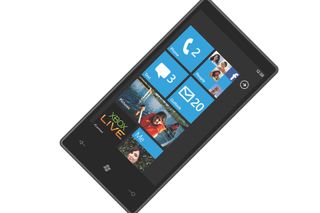Need to Know: Windows Phone 7
This Need to Know answers your questions on the platform, Windows Phone 7...

Microsoft unveiled its latest platform for mobile devices, the Windows Phone 7 series. Its introduction has proved popular, but the software giant still faces an uphill battle against the likes of Apple and Google.
Is Windows Phone 7 simply an upgrade to Windows Mobile?
No far from it. Microsoft has made no bones of the fact it has radically rethought its approach to mobile device platforms. The Redmond company has recognised the threat from Google, with its Android platform, and from Apple with the increasingly-adopted iPhone, among others.
So what's Microsoft changed?
A lot. Microsoft has moved from a very static smartphone environment to a dynamic real-time world, where tiles virtual buttons - on the device change over time. So when the user's contacts update their status on a social networking site, for example, that information will appear instead of older, non-updated information. Users can make choices on which tiles they see. The focus is all on touch-screen devices now.
If status updates are important, does that mean Microsoft is embracing social networking?
Very much so. It wants to make it easier for users to track their friends and contacts, and for users to post their updates much more quickly and easily.
Get the ITPro. daily newsletter
Receive our latest news, industry updates, featured resources and more. Sign up today to receive our FREE report on AI cyber crime & security - newly updated for 2024.
Sounds like the focus of Windows Phone 7 will be on the consumer market?
Microsoft is likely to win more custom from consumers than businesses with the new platform, though many consumers will use their Windows Phone 7 devices for work.
Most of the new design features in Windows Phone 7 are aimed at incentivising consumers to buy the product, though there is an office hub' in the OS which will control access to Office applications including push email. Five other hubs will give access to people, pictures, games, music and video, and applications. Microsoft now wants to make the mobile phone experience different to that of a PC.
If Microsoft wants to offer a different experience, has it done away with the Start button?
Nope. Bing will get its own button as well, making the use of location-based services possible with less clicks.
In terms of the competition, will Windows Phone 7 give Microsoft an advantage versus Apple and Google?
We wouldn't go that far, not least because developers will have to write new apps for the platform as there is no backwards compatibility with Windows Mobile. But Windows Phone 7 places Microsoft in a much stronger position than it was with Windows Mobile.
Has Microsoft finally backed away from making its own phone hardware?
Redmond had mulled the possibility, but now considers it more cost-effective to let handset vendors create the hardware.
Which handset vendors are interested in offering Windows Phone 7?
HTC, LG, Samsung and Sony Ericsson have raced to throw their hat into the ring, but will retain their interest in other operating systems.
Which operators will offer it?
The parent companies of O2 and T-Mobile as well as Orange and Vodafone have pledged to offer handsets based on Windows Phone 7.
Great. When can I get my hands on one?
Microsoft is only waving around prototypes at the moment. Commercial models will be released later in 2010.




